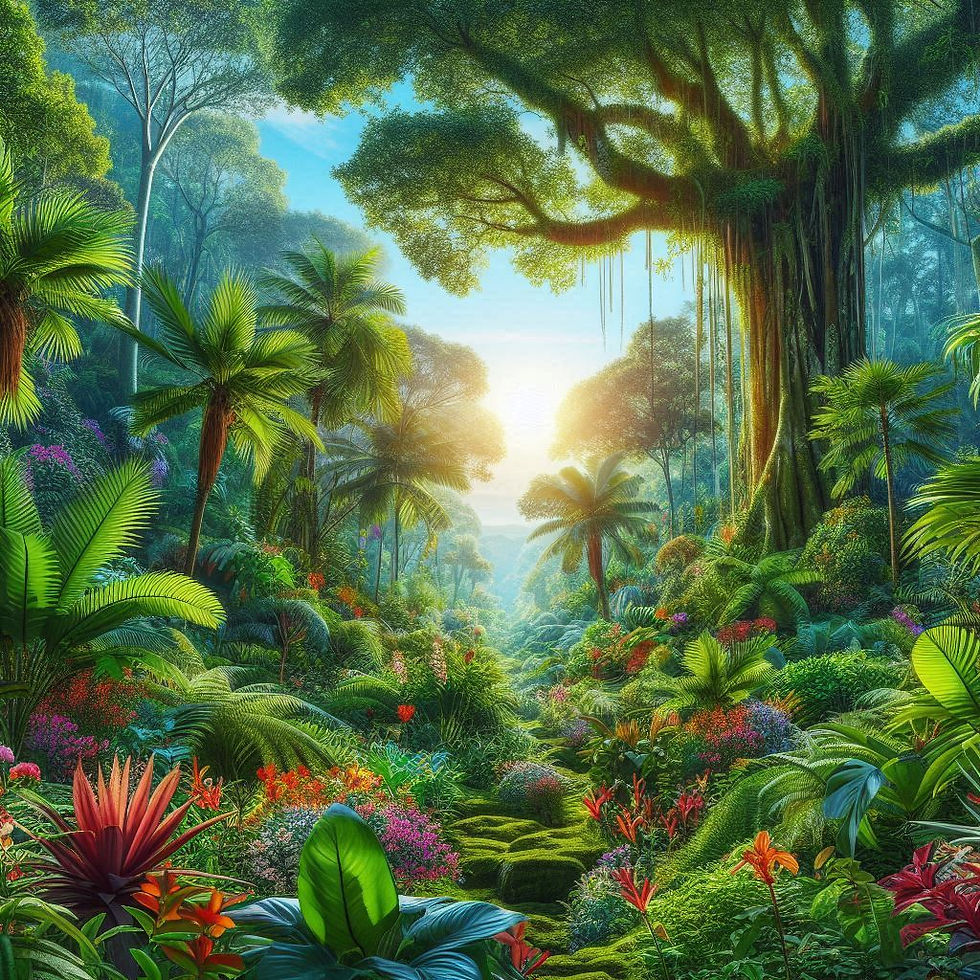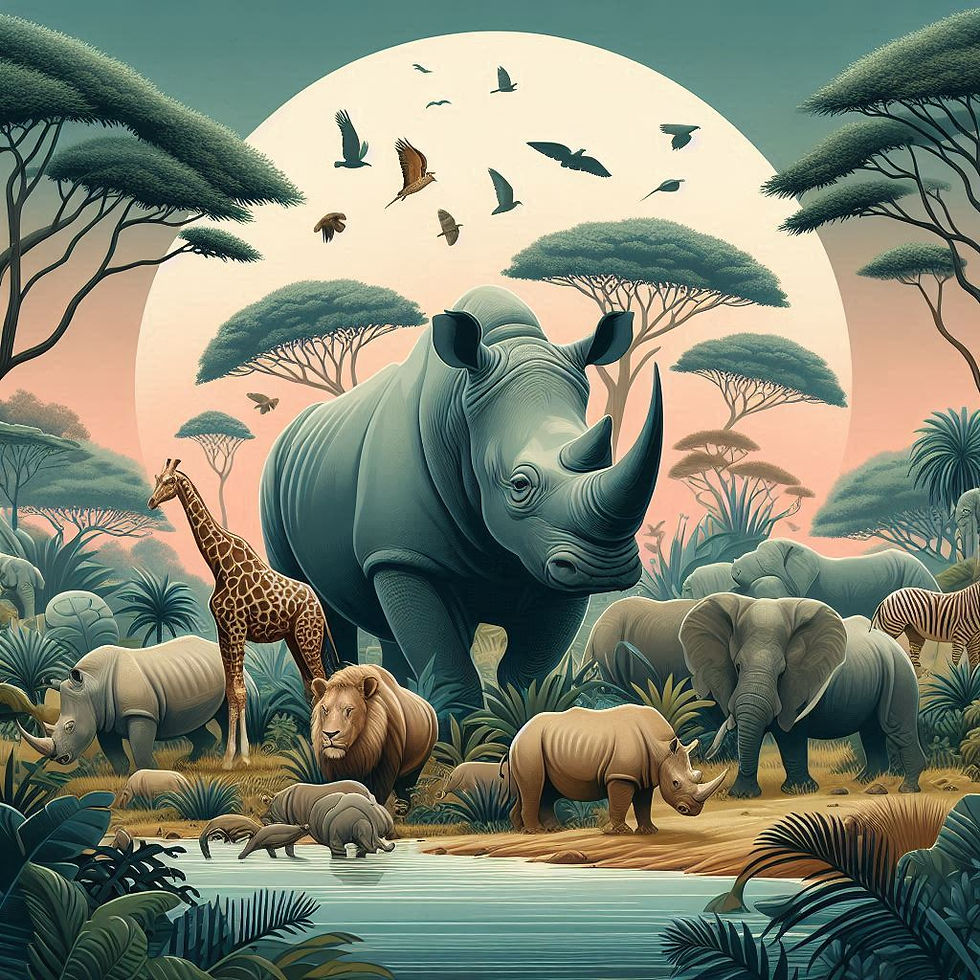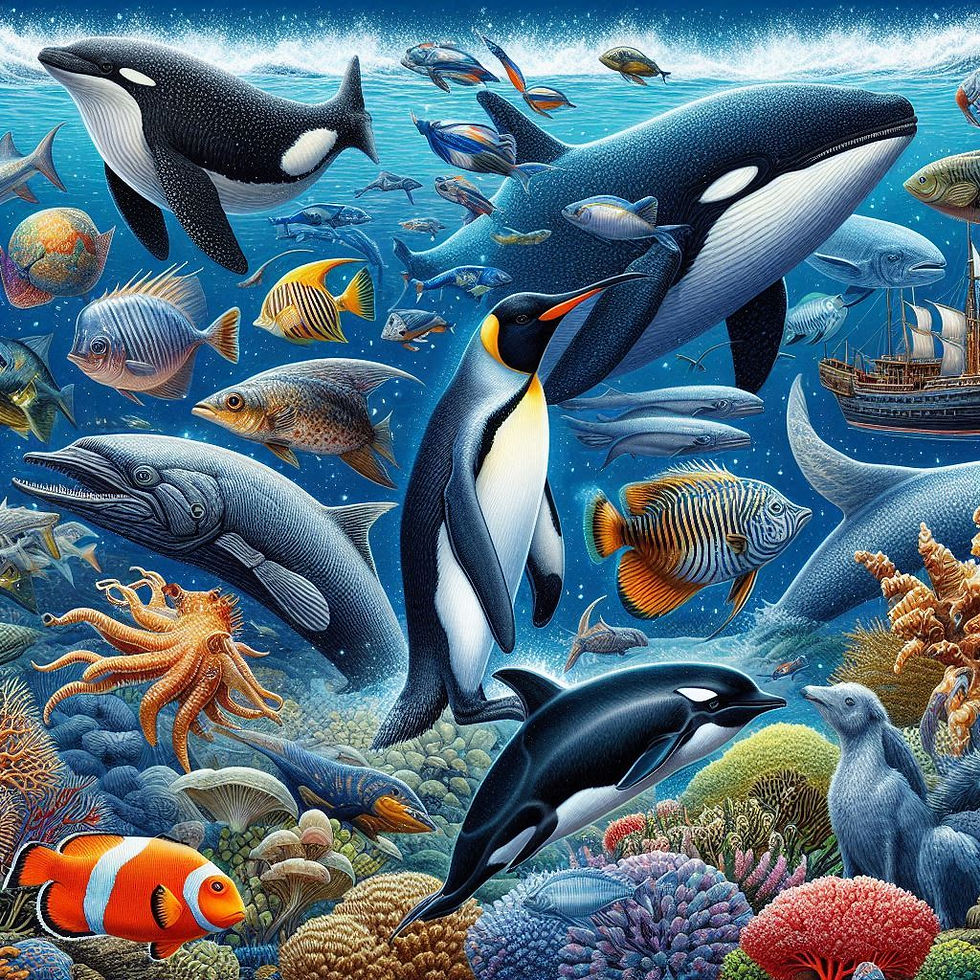Are We Heading Towards a World Without Wildlife?
- Dean Weiss

- Apr 12, 2025
- 2 min read
Our incredible natural world is disappearing at an astonishing rate! This urgent message comes from the WWF's Living Planet Report, a comprehensive document brimming with data from extensive global fieldwork.

The report, which is released biennially, unveils a stark and troubling picture regarding the state of our natural world, highlighting dire consequences for the environment and the myriad forms of life it sustains. Among the most alarming findings is the statistic that wildlife populations being monitored have diminished by an average of 73% from 1970 to 2020. This dramatic decline reflects not only the pressures exerted on wildlife by human activities but also underscores the urgent need for conservation efforts. In particular regions, such as Latin America and the Caribbean, the decline reached a staggering 95%, according to the World
Wildlife Fund (WWF). This sharp drop is indicative of the severe threats that ecosystems in these areas face, including habitat destruction, pollution, and climate change. The implications of this situation extend far beyond the realm of wildlife and ecosystems; they pose significant repercussions for humanity as a whole, as emphasized by the WWF.

The disappearance of wildlife signifies a profound loss of nature on our planet, which is intricately linked to human survival and well-being. The more biodiversity and nature decline, the more detrimental it is for humans, as we rely on these natural systems for essential resources. Nature provides us with vital necessities such as clean water, breathable air, nutritious food, and even medicine, all of which are crucial for our health and quality of life. Furthermore, healthy ecosystems play a pivotal role in carbon storage, which is vital in combating the ever-pressing challenge of global warming and climate change. In light of these alarming trends, the WWF issues a stark warning: “Indicators show that nature is disappearing at an alarming rate,” which reflects a growing concern among scientists and conservationists alike. The organisation emphasizes that “the risk of extinction is increasing, and healthy ecosystems may be lost.”

This warning serves as a call to action, urging mankind to recognise the urgent need for comprehensive strategies aimed at protecting and restoring our natural environments. Without immediate and concerted efforts to address these issues, the future of our planet and the myriad species that inhabit it hangs in the balance, with potentially irreversible consequences for both wildlife and humanity.
Nature's Tipping Point - A must watch
Conclusion
As we reflect on these findings, it becomes increasingly clear that concerted global efforts are necessary to reverse this trend. During the 50-year span from 1970 to 2020, wildlife populations declined by 73%, whereas the human population more than doubled, rising by 113.4%. Protecting biodiversity and restoring ecosystems should be a top priority for governments, organisations, and individuals alike. The well-being of our planet is absolutely vital to our own survival, and it's crucial that we take action now to protect the incredible diversity of life that supports us all!
The question I raise is whether there are enough people who truly care to bring about sufficient change on our planet.
Sources
2) Home | WWF]




People think that making money is more important than looking after the environment. The time is now to do something to reverse the degradation.
Most of the government heads in the world are motivated by profit. "Drill, baby drill!" comes to mind. There is very little material profit in the conservation effort, so it gets less attention. One day we will be sorry.